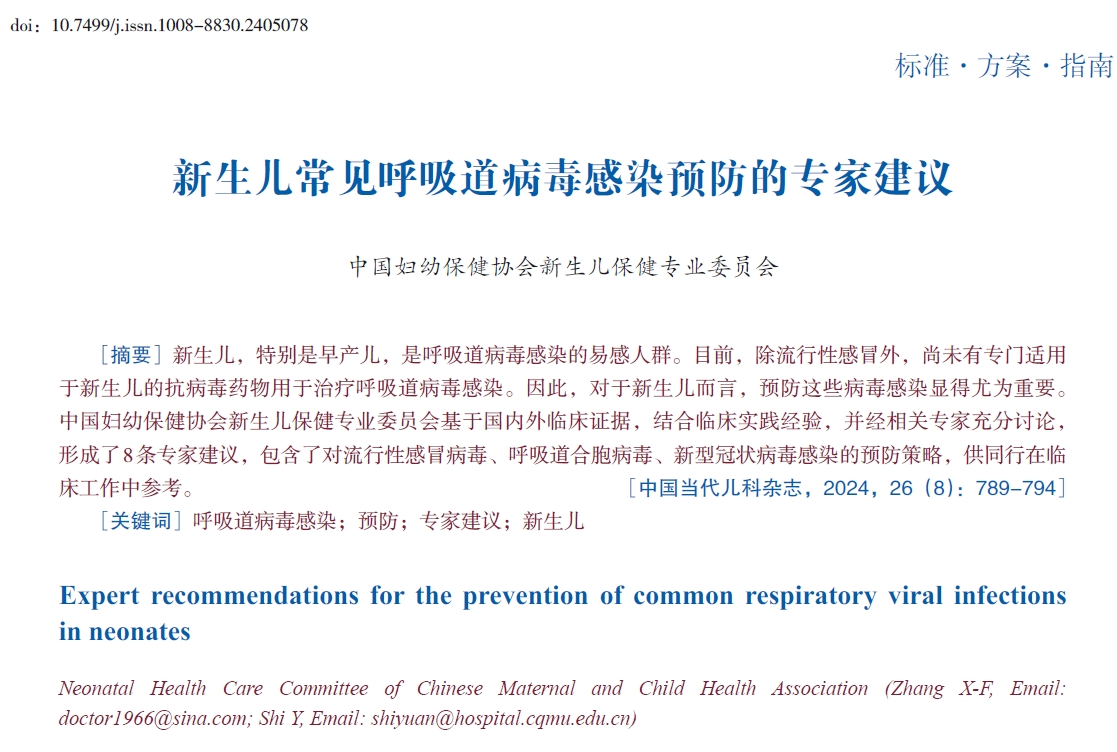 PDF(581 KB)
PDF(581 KB)


Expert recommendations for the prevention of common respiratory viral infections in neonates
Neonatal Health Care Committee of Chinese Maternal and Child Health Association
Chinese Journal of Contemporary Pediatrics ›› 2024, Vol. 26 ›› Issue (8) : 789-794.
 PDF(581 KB)
PDF(581 KB)
 PDF(581 KB)
PDF(581 KB)
Expert recommendations for the prevention of common respiratory viral infections in neonates

Respiratory viral infection / Prevention / Expert recommendation / Neonate